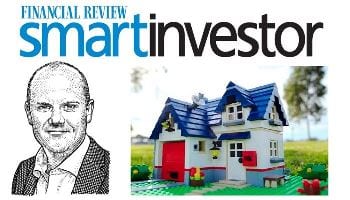When children move out of home, it can be like winning the lottery. You should put thought into how best to deal with this newfound cashflow.
By independent financial planner Tim Mackay.
One of the most common questions I am asked is along the lines of the following: “The kids have left school and home and I really want to focus on saving for retirement. Should I pay off the mortgage, invest or contribute to my super?”
This is an important question and there are many factors that you need to consider before making a decision. When the kids leave school or home, for most families this is effectively a welcome (and whopping) pay rise. We love our kids so much, but gee they can be expensive little so and sos.
Many families who have lived to a mortgage-constrained strict budget for many years all of a sudden find they have surplus cashflow. If you are in this situation, I encourage you to put in place a financial plan for these surplus funds so you set yourself up comfortably for the future. Crucial to this decision is how you feel emotionally about money. By you, I mean you and your partner as each individual may differ. For some, their key driver is the security and peace of mind that money represents, for others it’s the opportunity to make more money.
Reduce that mortgage
As a general rule, we believe that the younger you are the more your goal should be to reduce your mortgage. The discipline of a structured fixed repayment plan can be the best way to develop and maintain a strong savings habit. As you grow older, consider diversifying your wealth strategies to increase your super, and potentially your investments.
Our default position for most clients is to focus with almost religious zeal on reducing the mortgage to near zero as soon as possible. Increase your payment frequency or increase your repayment amounts, or even both. You know with a certainty of 100 per cent that you will have to pay interest on this debt and that the debt is bad (ie non-tax deductible). Reducing this bad debt to near zero takes a huge financial load off your shoulders as you approach retirement, and provides certainty and opportunity.
The reason to draw it down to near zero is because, by retaining your mortgage with a redraw facility, you can use these funds for future financial opportunities. A redraw facility is far more cost effective than other sources of credit.
Uncertainty
On the flip side, as rational investors we know that investing in or out of super involves uncertainty. Future returns may be spectacular or, as we saw through the GFC, may be poor. More likely they will lie somewhere in between.
If we put our rational investor hat on, the maths is relatively simple. Assuming a standard variable mortgage rate of 6 per cent, then you’d need expected investment earning quite a bit higher than this to justify the effort. We encourage you to allow for at least a 2 per cent cumulative interest rate rise as the economy recovers.
Assuming the gross ASX 200 dividend yield is currently circa 5.5 per cent, you don’t need to assume too much capital growth for the salary sacrificing into super or investing option to become attractive. This can be a great way of diversifying your strategy but ensure that you focus on expected after-tax returns and factor in transactions costs.
For some the optimal strategy can combine all three – mortgage reduction, tax effective super contributions, and investing. In reality there is no one-size fits all response – the best strategy for you is highly dependent on your personal circumstances and your approach to investing. What is key is that you commit to a decision, formulate a plan, and make progress.
As an advisor, I’m clearly biased. I think you should run this analysis by your advisor because they may be able to help you save money and increase your benefits. However, many of you will be more than capable of doing the comparative analysis yourself. If you do seek a sounding board for a second opinion, ensure their financial interests are clearly in line with your financial interests.
Fixed fee option
Most financial planners are remunerated based on a percentage of the fees they advise you to invest, in super or investments (typically held on a wrap platform). However, every dollar you use to reduce your mortgage or invest in an investment property reduces their potential fees. The conflict of interest is clear. If this is a concern to you, seek out a fixed fee advisor.
As you approach retirement, your two biggest assets will likely be your home and your super. Wisely plan your transition to retirement to emotionally and rationally get the mix between the two just right to set your family up for your exciting dream retirement.



